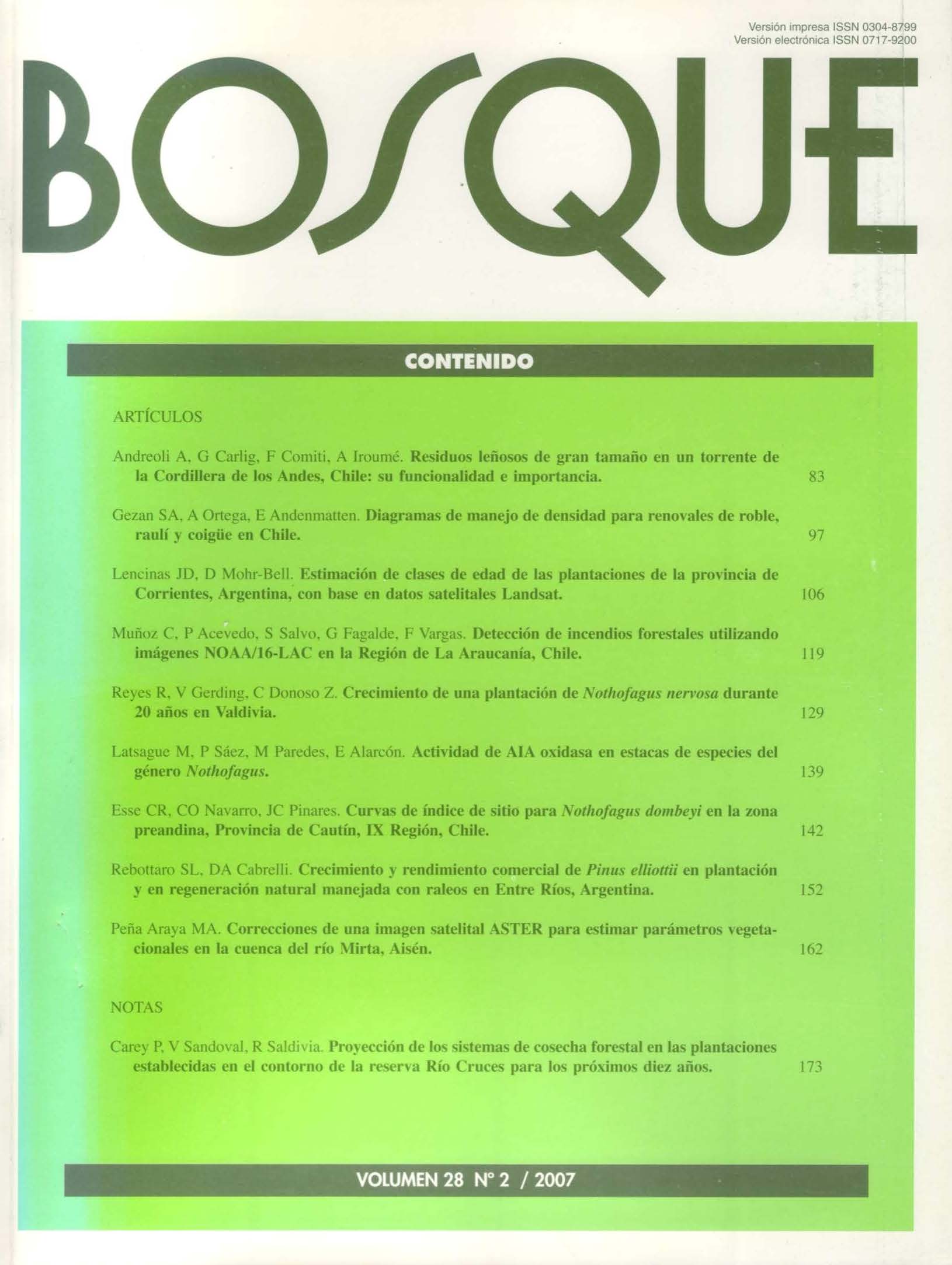Projection of the forest harvesting systems in plantation areas established in the contour of the Río Cruces reserve for the next ten years
Main Article Content
Abstract
This study is a first report of the projection of the forest harvesting systems in plantation areas established at the contour of the Río Cruces reserve, located in the south of Chile. The study method considered the slope of the terrain at the plantation areas, the accessibility and the species. The study area was delimited and measured by a geographic information system; a set of thematic cover types was processed and obtained multiple graphical representations, which correspond to 9,472 ha. In the total area, a digital elevation model was processed in order to classify the harvesting areas in four slopes categories. This information allows to have a first approach in harvesting systems projection. Other data base was built related to areas and volumes of timber to be harvested for the plantations of Pinus radiata and Eucalyptus spp., during the next 10 years. The accessibility to these plantations includes principal paved roads and secondary gravel roads. The most relevant results were that 79% of the plantations in study area belongs to the forest companies. Besides, 90% of the total area (8,553 ha) is in the slope range condition lower than 30%. This indicated that the most important harvesting systems will be a ground-based mechanised system. The total harvesting volume projected in the plantation areas is approximately 2.4 million cubic meters in the next ten years.

